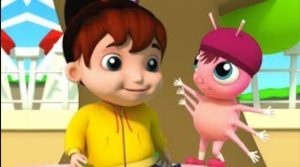Nursery rhymes have long been an integral part of children’s literature, capturing young imaginations with their simple yet captivating stories and melodies. One such popular nursery rhyme is “Little Miss Muffet.” In this article, we will delve into the origins of “Little Miss Muffet,” explore its various interpretations and adaptations, discuss its educational benefits, and highlight some popular renditions available on YouTube.
” little miss Muffet lyrics “
Listen to and watch the video of the classic nursery rhyme “little miss muffet rhyme lyrics” below.
“Little Miss Muffet” is an English nursery rhyme that has been enjoyed by children for generations. Its catchy rhythm and amusing storyline make it a favorite among young kids and their parents alike. This nursery rhyme features a young girl named Little Miss Muffet and her encounter with a spider while she is eating her curds and whey
Origin and History of “Little Miss Muffet” Nursery Rhyme
The exact origin of “Little Miss Muffet” remains uncertain, but it was first recorded in 1805 and has since become a beloved part of nursery rhyme collections [1][5]. The rhyme is indexed as number 20605 in the Roud Folk Song Index. While its origins may be mysterious, its enduring popularity is a testament to its timeless appeal.
Interpretation and Adaptations of “Little Miss Muffet”
“Little Miss Muffet” has been interpreted and adapted in various forms over the years. One notable rendition of the rhyme was performed by Dudley Moore during the British comedy stage revue “Beyond the Fringe” in 1960 [2]. This interpretation added a comedic twist to the familiar tale, delighting audiences with its playful approach.
Singing Along and Educational Benefits of “Little Miss Muffet”
Singing and reciting nursery rhymes like “Little Miss Muffet” can have numerous educational benefits for young children. These rhymes help develop language skills, enhance vocabulary, and improve memory retention. Singing along with nursery rhymes also promotes early literacy, rhythm awareness, and cognitive development [3]. Additionally, they introduce children to storytelling and encourage their creativity and imagination.
Popular Renditions of “Little Miss Muffet” on YouTube
YouTube has become a treasure trove of nursery rhyme videos, and “Little Miss Muffet” is no exception. Numerous channels, such as CoComelon Nursery Rhymes & Kids Songs and Super Simple Songs, have uploaded animated renditions of the rhyme that captivate young viewers [4][6][7]. These colorful and engaging videos bring the characters and story to life, providing an immersive and interactive experience for children.
Lyrics and Melody of “Little Miss Muffet”
The lyrics of “Little Miss Muffet” are simple and memorable, making it easy for children to sing along. The traditional version of the rhyme goes like this:
Little Miss Muffet
Sat on a tuffet,
Eating her curds and whey;
Along came a spider,
Who sat down beside her
And frightened Miss Muffet away.
The melody follows a light and playful tune, which further enhances the enjoyment of reciting or singing this nursery rhyme.
Importance of Nursery Rhymes for Early Childhood Development
Nursery rhymes, including “Little Miss Muffet,” play a crucial role in the development of young children. They not only entertain but also contribute to language acquisition, phonemic awareness, and social interaction. Nursery rhymes introduce young learners to basic literary elements such as rhyme, rhythm, and repetition, which are building blocks for reading and writing skills. Furthermore, these rhymes can stimulate a child’s imagination and foster a love for language and literature from an early age.
FAQs
Who wrote the nursery rhyme “Little Miss Muffet”?
The exact author of “Little Miss Muffet” is unknown. The rhyme was first recorded in 1805 and has since become a popular part of nursery rhyme collections [1][5].
Are there different variations of “Little Miss Muffet”?
While the core storyline of “Little Miss Muffet” remains consistent, there have been interpretations and adaptations of the rhyme over the years. One notable rendition was performed by Dudley Moore during the British comedy stage revue “Beyond the Fringe” in 1960.
What are the educational benefits of nursery rhymes like “Little Miss Muffet”?
Nursery rhymes like “Little Miss Muffet” provide numerous educational benefits for young children. They help develop language skills, enhance vocabulary, improve memory retention, promote early literacy, and foster rhythm awareness and cognitive development.
Where can I find animated versions of “Little Miss Muffet” to watch with my child?
YouTube offers a wide range of animated renditions of “Little Miss Muffet” that are perfect for children. Channels such as CoComelon Nursery Rhymes & Kids Songs, Super Simple Songs, and others feature captivating videos of the rhyme.
How can nursery rhymes benefit early childhood development?
Nursery rhymes, including “Little Miss Muffet,” aid in language acquisition, phonemic awareness, social interaction, and the development of basic literary elements. They stimulate imagination, foster a love for language and literature, and lay the foundation for essential reading and writing skills.
Conclusion
“Little Miss Muffet” continues to enchant children with its whimsical tale of a girl, a spider, and a bowl of curds and whey. Its timeless appeal, educational benefits, and adaptability have secured its place in the hearts of both children and adults alike. By singing along and engaging with nursery rhymes like “Little Miss Muffet,” we can create a fun and educational experience for children, fostering their love for language and literature.


